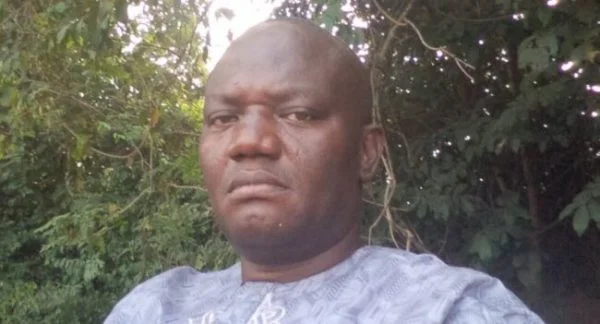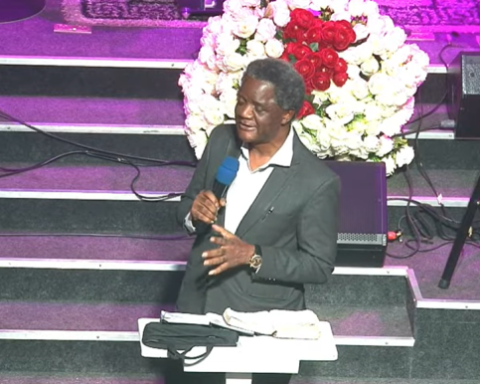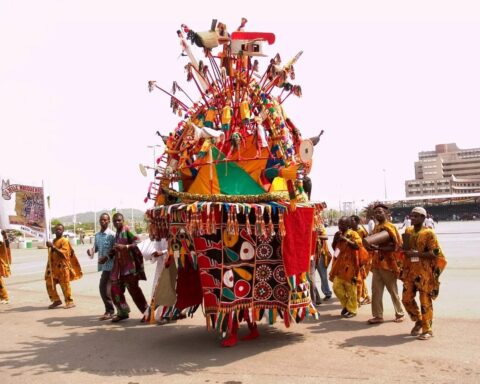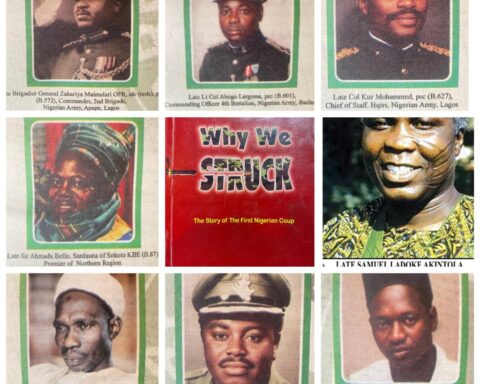In recent times, we’ve seen the transition of the powerful, but we must not ignore the transition of millions of ordinary people, for their lives also count. We are reminded of John Donne’s famous admonition that we should _“never send to know for whom the bell tolls; it tolls for thee”,_ as it reminds us of our shared humanity.
For the high and mighty, we are reminded of the wise counsel of former French President Charles de Gaulle. When sycophants and party hacks tried to dissuade him from resigning, he sternly told them that _“the graveyard is full of the bodies of indispensable men”_ before throwing them out. Those who, for their own convenience, turn humans into deities would be well-advised to always remember de Gaulle’s words.
The key point is that people shouldn’t be terrified of death. Even figures like the biblical Methuselah have passed on, yet the world continues to exist. This demonstrates that no individual is indispensable to the continuation of the world. Perhaps what truly terrifies people is not death itself, but the possibility that their lives were never truly lived. This is not surprising, as our earthly journey is full of twists and turns, making us question our impact and purpose.
Go to Atan Cemetery and you will find people with names like Málomó, Kòkúmó, and Dúrójayé. These names, which mean ‘Don’t go again’, ‘He did not die’, and ‘Endure life’, are a reflection of the human desire to cheat death. Yet, as de Gaulle said, they are all now in the graveyard, lifeless. If Àìkú, a name that means ‘one who does not die’, eventually succumbs, what does that tell us?
The Yoruba proverb says it all: _“Ikú á pa eni à ń pè. Ikú á pa eni tí ń pe ni!”_ (Death is no respecter of persons. It kills the Celebrator, it kills the Piper). Once upon a time, those whose destinies now lie in the graveyard were the ones feeding their families and paying their children’s school fees. They were the ones providing shelter. At one time or another, they all flew away, never to dwell in this wide, wild world of war again!
The lack of intellectual honesty in analyzing transient historical interludes is deeply disturbing. Today, assessments of the high and mighty are often based on the words of paid hacks whose objectivity is questionable at best. These are not serious analysts but revisionists serving a specific agenda.
It is worth pondering the lasting impact of what the high and mighty and their often-delusional supporters do with the rare opportunities given to them. This leads to a crucial question: In any honest assessment, will they be given the same kudos 30 or 50 years from now?
Kudos must be given to people like Jawaharlal Nehru, Obafemi Awolowo, Ahamadu Bello, Nnamdi Azikiwe, Lateef Jakande and Sam Mbakwe. These individuals have not merely faded into history; they have become legends. They decisively altered the perception of public service, proving that it could be an endeavour of lasting, positive impact rather than a fleeting opportunity for self-interest.
Again, consider the lasting impact of Brazil’s current president, Ignacio Lula da Silva. In his first two terms, his administration, through social programmes like Bolsa Família, lifted 40 million people out of poverty, significantly reducing income inequality. This was accomplished within a democracy with a genuine separation of powers, where he controlled only a minority of the National Assembly.
_“De mortuis nil nisi bonum.”_ The misinterpretation of the Latin admonition that we should not “Speak no ill of the dead”, attributed to the Greek philosopher Chilon of Sparta, is reckless, immoral, and self-serving. The claptrap is a deliberate, dishonest distortion of its original meaning. The correct interpretation is that one should be circumspect in expressing one’s opinion or verdict on people who are not there to defend themselves.
Those who use this claim to silence criticism are practising a disingenuous form of opportunism. Does a fair assessment of figures like Adolf Hitler, Benito Mussolini, Pol Pot, Idi Amin and Mobutu Sese Seko constitute ‘speaking ill of the dead’? Awolowo and Okpara have been gone for decades, yet life has continued. The world doesn’t stop because a powerful person is no more. The idea that we must sanitize history out of some misguided respect for the dead is a convenient myth, not a moral imperative.
A person with a game-changing track record has no need for adulators and paid opportunists to secure a deserving place in the pantheon of history. His contributions alone would have earned it. This is the way it should be!



























